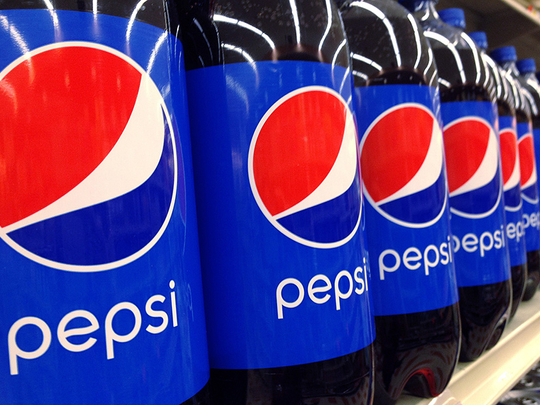
New York: US consumers are putting fewer soft drinks in their grocery carts, forcing PepsiCo Inc. to rely more heavily on its snack business to fuel growth.
The company’s North American beverage sales dropped 3 per cent last quarter, a decline the company blamed in part on dialling back marketing of its biggest brands. Though PepsiCo was still able to top analysts’ earnings estimates — helped by cost cuts and stronger sales at its Frito-Lay business — the results left analysts and investors feeling underwhelmed.
“We see little reason to get excited,” Bonnie Herzog, an analyst at Wells Fargo & Co, said in a note. The North American beverage sales were “much worse than we expected.”
The results deliver an increasingly familiar story to PepsiCo shareholders: With many customers turning away from soft drinks — both to avoid sugar and artificial sweeteners — the company’s snack business is carrying more of the load. Chief Executive Officer Indra Nooyi also has pushed PepsiCo into healthier food and pursued at least $1 billion (Dh3.67 billion) annually in cost cuts, aiming to reinvest the savings in research and development.
But the pursuit of new products has brought some downside. PepsiCo hurt its core brands last quarter by shifting shelf space and marketing dollars away from its mainstay beverages, Chief Financial Officer Hugh Johnston said in an interview. Its Gatorade line-up also was hurt by a slowdown at convenience stores, he said.
“The good news is, these are tactical issues,” Johnston said. “We know how to fix them. Basically, we’ll reshift our resources back behind our bigger brands a little bit, and we’ll see the business improve sequentially in the next couple quarters.”
On a call with analysts, Nooyi echoed this sentiment, saying the company is acting to correct its path.
“We have a good handle on what happened and we’re making immediate adjustments to get the business back to growth,” she said.
Investors took a sceptical view, sending the shares down as much as 2.7 per cent to $106.19 in New York. The stock had climbed 4.3 per cent this year through Tuesday’s close.
Core earnings rose to $1.48 a share in the third quarter, compared with an average analyst estimate of $1.43. The Purchase, New York-based company now expects profit to reach $5.23 this year, up from a previous projection of $5.13.
Slower sales
Reinvigorating sales growth has been more of a challenge. PepsiCo said on Wednesday that organic revenue — a measure that strips out currency fluctuations and other items — would increase 2.3 per cent this year, below its previous prediction of 3 per cent.
The decline at the North America beverage unit is part of an industry-wide slump. Per capita soda consumption in the US fell to a 31-year low in 2016, according to Beverage-Digest, a trade publication.
Revenue amounted to $16.2 billion last quarter, compared with the average estimate of $16.3 billion.
As part of its bid to energise growth, PepsiCo is focusing on so-called everyday-nutrition products — fare that includes nutrients like grains, fruits, vegetables or protein. The category also includes water and unsweetened tea.
Its broader “guilt-free” line-up includes any drinks with fewer than 70 calories and food with lower levels of sodium and saturated fat. PepsiCo has pledged to reduce the amount of sugar, sodium and saturated fat in its products by 2025.
The moves are in line with a broader shift in the industry: Rivals Coca-Cola Co. and Dr Pepper Snapple Group Inc. are also increasingly expanding beyond their namesake sparkling beverages.
Calorie cuts
The American Beverage Association, a soft-drink industry trade group, announced a pledge in 2014 to decrease per capita calorie consumption from drinks by 20 per cent by the year 2025. Initial results show slow progress: Caloric intake from beverages fell just 0.2 per cent in 2015, the latest year with available data.
Some analysts see possibilities ahead for PepsiCo as an acquisition target. The company is a logical pick for a takeover by Anheuser-Busch InBev SA and Kraft Heinz Co., according to Susquehanna International Group analyst Pablo Zuanic. That prospect is why he maintains a buy rating on the stock, Zuanic said in a report this week.










